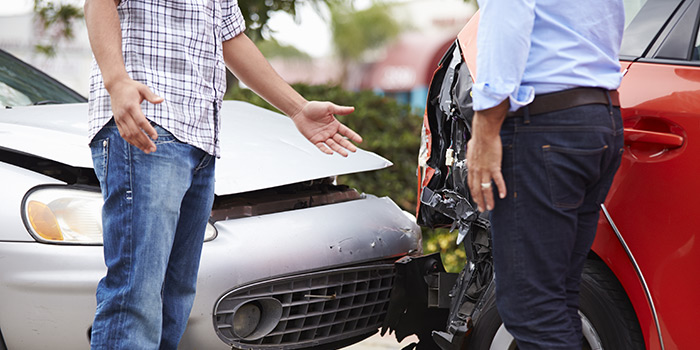Automobile accidents are challenging events, and their complexity increases manifold if the involved party lacks auto insurance. Understanding “what is collision insurance” and its role becomes crucial in this context. This article aims to provide a comprehensive understanding of the repercussions faced by individuals who get into an automobile accident without insurance, including the absence of crucial coverages like collision insurance, which is designed to cover vehicle damage in accidents.
Legal and Financial Ramifications of Driving Uninsured
Driving without insurance is illegal in most jurisdictions. If involved in an accident while uninsured, the consequences can range from fines and license suspension to imprisonment, depending on the state’s laws and the severity of the accident.
Financial Liability for Damages
One of the most immediate and significant consequences of being uninsured in an accident is the financial liability for damages. This includes:
- Liability for Third-party Damages: If found at fault, the uninsured driver is personally responsible for the third party’s medical bills, vehicle repairs, and any other property damage. These costs can escalate quickly, especially in the case of serious injuries or high-value property damage.
- Personal Losses: The uninsured driver must also bear the cost of repairing or replacing their vehicle, as there is no insurance coverage to rely on.
- Legal Costs: If the other party involved in the accident decides to sue for damages, the uninsured driver will have to cover legal fees and potential court-ordered compensation, which can be financially crippling.
Increased Insurance Costs Post-Accident
If an uninsured driver decides to purchase insurance after an accident, they may face significantly higher premiums. Insurance companies view previous uninsured status and accident history as indicators of high risk, leading to increased insurance costs.
What is Collision Insurance?
Collision insurance is a type of auto insurance that specifically covers damage to the policyholder’s vehicle resulting from a collision, whether it’s with another vehicle or an object like a fence or a tree. This coverage is important as it ensures that in the event of an accident, the policyholder’s vehicle repairs or replacement costs are covered, subject to the deductible and policy limits.
For uninsured drivers, the lack of collision insurance means they must bear the full cost of repairs or replacement of their vehicle, adding to the financial strain post-accident.
Impact on Credit and Future Financial Transactions
The financial strain of covering accident-related costs can impact an uninsured driver’s credit score, especially if they are unable to promptly pay for the damages or legal costs. A low credit score can have long-term effects, such as difficulty in securing loans, higher interest rates, and challenges in future insurance applications.
Potential for Uninsured Motorist Claims by Victims
Victims of an accident may file uninsured motorist claims with their insurance company if the at-fault party is uninsured. While this does not directly impact the uninsured driver, it contributes to the overall cost burden of the insurance system, often resulting in higher premiums for all policyholders.
The Risk of Severe Legal Consequences
In severe cases, especially where serious injuries or fatalities are involved, uninsured drivers may face criminal charges, leading to severe legal consequences including imprisonment. This risk underscores the critical importance of having auto insurance.
Responsibility Towards Victims
Beyond the legal and financial implications, driving without insurance and causing an accident puts a significant burden on the victims. They may face challenges in getting timely compensation for their losses, adding to the distress caused by the accident.
Preventing the Risk: Importance of Adequate Insurance
To avoid these severe consequences, drivers must have adequate auto insurance. This not only includes liability coverage, which is legally mandated in most states, but also collision insurance for comprehensive protection of one’s vehicle.
Conclusion
In summary, getting into an automobile accident without insurance can have far-reaching legal, financial, and personal consequences. The uninsured driver faces significant financial liabilities, legal repercussions, and potential long-term impacts on their credit and financial stability. The absence of specific coverages like collision insurance further exacerbates the financial burden. Therefore, maintaining adequate auto insurance is not just a legal requirement but a critical aspect of financial and personal responsibility for all drivers. It safeguards not only the driver’s interests but also ensures fair and timely compensation for any victims involved in an accident.
